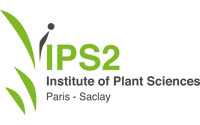Chromosome Dynamics
Team ChromD / Moussa Benhamed

Visit the updated website of our lab
https://www.chromosomedynamics.com/
Plants are sessile organisms that constantly adjust to fluctuations in their environment. They have therefore evolved extensive plasticity both in terms of physiological responses and in terms of development. Indeed, plant development is largely post-embryonic, and this capacity to form new organs throughout their lifecycle allows plants to shape their whole architecture according to environmental cues. This requires mechanisms that ensure the robust regulation of key developmental genes, as well as the maintenance of stem cell pools in which both the genetic and epigenetic information have to be safeguarded and faithfully reproduced through cell divisions.
Indeed the genetic information is encompassed by DNA, but how this information is interpreted largely depends on its interaction with histones into chromatin, and on how this chromatin is opened to allow access of the transcription machinery. Deposition of post-translational modifications on histones, incorporation of histone variants, DNA methylation, non-coding RNAs and the formation of chromatin loops cooperate to establish coordinated activation or repression of large sets of genes. The Chromosome Dynamics groups thus aims to understand:
- How the integrity of chromatin is maintained in dividing cells, i.e. how the genetic and epigenetic informations are faithfully duplicated during the cell cycle.
- How chromatin dynamics control plant development and response to stress.
